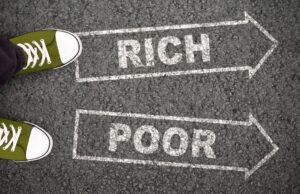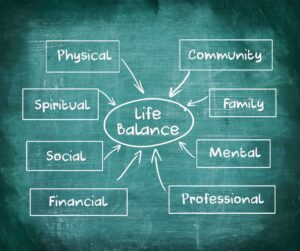Money, an essential yet complex part of life, holds power over many aspects of our daily existence. Understanding the dynamics of financial health is crucial, especially for those grappling with the challenges of being broke. Here, we explore 15 hard truths about money that not only highlight the stark realities of financial hardship but also offer insights to reshape your approach toward achieving financial stability.
1. Being Broke is Often a Symptom, Not the Disease
While it’s easy to see a lack of money as the primary issue, being broke is frequently a symptom of broader problems such as lack of financial education, poor spending habits, or systemic barriers. Addressing these underlying issues can be the key to long-term financial health. Educating yourself about personal finance and seeking advice from financial experts can offer pathways out of financial difficulty.
2. Emergency Funds are Not Optional
One of the hard truths about money is the critical importance of an emergency fund. Life is unpredictable, and without a financial buffer, unexpected expenses can devastate your budget. Financial advisors typically recommend saving at least three to six months’ worth of expenses, although even a small emergency fund is better than none. Even in tiny increments, starting to save can help build this crucial safety net.
3. High-interest debt is a Silent Wealth Killer
Credit card debt, payday loans, and other high-interest debt can keep you trapped in a cycle of being broke. The longer you carry this kind of debt, the more money you lose to interest payments, which can stifle your ability to save and invest. Prioritizing the repayment of high-interest debts is essential for regaining financial control.
4. Financial Literacy is Empowering
Lack of financial literacy is a significant handicap when managing money. Understanding basic personal finance concepts such as budgeting, investing, and the power of compound interest can transform your financial outlook. Many communities offer free resources to improve financial knowledge, which can equip you with the tools to make more informed decisions.
5. Money Habits Reflect Life Priorities
Your spending habits often reflect what you value most. By examining where your money goes each month, you can gain insights into your priorities and potentially uncover areas where your spending does not align with your long-term goals. This realization can be a tough pill to swallow, but it’s necessary for reshaping your financial future.
6. Being Broke Can Sometimes Be a Choice
In some cases, being broke results from repeated poor financial decisions rather than external circumstances. Recognizing and accepting responsibility for these choices can be challenging but is often the first step towards change. Identifying and working diligently to change destructive financial habits can significantly impact your financial health.
7. Wealth is Built Slowly
Overnight financial success is more myth than reality. Building wealth typically requires patience, perseverance, and long-term planning. This truth can be hard to accept in a culture that often celebrates quick gains and overnight successes. However, understanding this can set more realistic expectations and foster healthier financial practices.
8. You Cannot Out-Earn Poor Spending Habits
No matter how much money you make, poor spending habits can keep you in a state of being broke. Budgeting isn’t just for those with limited incomes; it’s essential for everyone. Living within your means and spending less than you earn is foundational to financial freedom.
9. Financial Stress Affects Your Health
The stress of being broke can significantly affect your mental and physical health. Anxiety, depression, and stress-related illnesses are more common in individuals facing financial strain. Recognizing this can motivate you to take financial health more seriously, directly impacting your overall well-being.
10. Social Comparisons Can Skew Your Financial Perspective
Comparing your financial situation to where others stand can lead to misguided perceptions and unhealthy financial decisions. Focusing on your financial goals and reality is essential rather than trying to match or outpace your peers. This truth is crucial in an age dominated by social media, where the highlights of others’ lives may not accurately reflect their financial reality.
11. Investing is Not Just for the Rich
Thinking that investment opportunities are only for the wealthy is a misconception that can keep you from growing your wealth. Today, numerous platforms allow people to start investing with small amounts of money. Educating yourself about these options and starting small can help demystify investing and make it a viable part of your financial strategy.
12. Financial Sacrifices Pay Off
Short-term sacrifices for long-term gains are a fundamental truth in financial planning. This might mean living below your means or delaying gratification to save and invest. While challenging, these sacrifices can pave the way to a more secure financial future.
13. Money Won’t Solve All Your Problems
It’s a common misconception that having more money will solve all problems. While money can alleviate many financial stresses, it’s not a panacea for life’s challenges. Understanding this can help maintain a balanced perspective on what money can and cannot do.
14. Financial Independence Requires Discipline
Achieving financial independence is a goal for many, but it requires significant discipline and dedication. This includes making tough decisions daily to prioritize your financial future over your immediate desires. Discipline in monetary matters often separates those who achieve financial independence from those who do not.
15. Your Net Worth is Not Your Self-Worth
Finally, one of the most important hard truths about money is that your net worth does not define your value as a person. Being broke does not reflect your capabilities, worth, or potential. Maintaining this perspective is essential for mental and emotional health as you work towards financial stability.
Why These Hard Truths About Being Broke Matter
Understanding these hard truths about money can profoundly change how you view financial health and being broke. By embracing these realities, you can take more controlled steps toward a stable financial future, making informed decisions that align with your long-term goals.
Read More:
9 of the Most Common Reasons People End Up Broke
10 Unexpected Benefits of Living on a Tight Budget: The Upsides of Being Broke
Catherine is a tech-savvy writer who has focused on the personal finance space for more than eight years. She has a Bachelor’s in Information Technology and enjoys showcasing how tech can simplify everyday personal finance tasks like budgeting, spending tracking, and planning for the future. Additionally, she’s explored the ins and outs of the world of side hustles and loves to share what she’s learned along the way. When she’s not working, you can find her relaxing at home in the Pacific Northwest with her two cats or enjoying a cup of coffee at her neighborhood cafe.






























